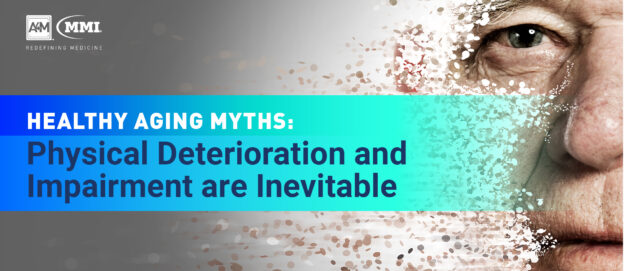As a result of incredible technological and scientific advances, human life expectancy has now doubled. According to data from the World Health Organization, the proportion of the world’s population over the age of 60 is expected to double from 11% to around 22% by the year 2050. With an increasing aging population at hand, it is important for healthcare professionals to combat the many medical myths surrounding the biological aging process which may detrimentally affect patient longevity and well-being.



